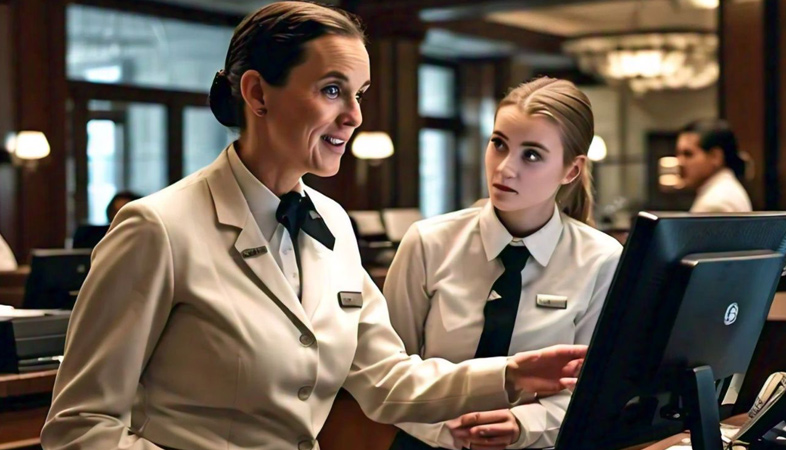The Importance of Staff Training in Delivering Exceptional Hotel Experiences
Exceptional hotel experiences are crafted through the skills, knowledge, and attitude of employees who interact with guests daily.
In the hospitality industry, the guest experience is
paramount. A hotel’s reputation hinges not only on its facilities and amenities
but also on the quality of service provided by its staff. Exceptional hotel
experiences are crafted through the skills, knowledge, and attitude of
employees who interact with guests daily. Consequently, investing in
comprehensive staff training is crucial for hotels aiming to create memorable
experiences that foster guest loyalty and satisfaction.
Staff training is foundational to building a knowledgeable and confident team. From front desk personnel to housekeeping staff, every employee plays a vital role in shaping the guest experience. Comprehensive training programs equip staff with the necessary skills to perform their duties efficiently and effectively. For instance, front desk staff who are well-trained in customer service protocols can handle guest inquiries and complaints with ease, fostering a welcoming atmosphere. Training also enhances employees’ knowledge about hotel facilities, local attractions, and available services, enabling them to provide informed recommendations that enrich guests’ stays.
Beyond technical skills, staff training emphasizes the importance of soft skills such as communication, empathy, and teamwork. In a hospitality setting, these interpersonal skills are critical for building rapport with guests. Training programs that focus on enhancing these skills enable employees to understand guests’ needs better and respond to them appropriately. For example, a housekeeper trained in effective communication can recognize when a guest requires additional services or has special requests, thereby improving the overall experience.
Moreover, ongoing training is essential for keeping staff up to date with industry trends and changing guest expectations. The hospitality landscape is constantly evolving, influenced by factors such as technology advancements and shifting consumer preferences. Regular training sessions can introduce staff to new tools and systems that improve operational efficiency, such as property management systems or mobile check-in applications. Staying informed about current trends, like sustainable practices or personalized service, allows hotels to cater to the evolving desires of guests, ultimately leading to greater satisfaction.
Staff training also plays a significant role in employee engagement and retention. When employees feel supported and valued through training opportunities, their job satisfaction increases. This investment in personal and professional development creates a motivated workforce that takes pride in their roles. A well-trained team is more likely to deliver exceptional service, resulting in positive guest experiences. Additionally, high employee satisfaction translates into lower turnover rates, which is crucial for maintaining continuity and consistency in service quality.
Another critical aspect of training is fostering a culture of service excellence within the hotel. When management prioritizes training, it sends a clear message that exceptional service is a core value. This culture inspires employees to take ownership of their roles and strive for excellence in every guest interaction. Training programs can instill a sense of pride and responsibility in staff, motivating them to go above and beyond to ensure guests feel valued and appreciated.
Furthermore, training can address specific challenges that may arise in hotel operations. For example, dealing with difficult guests or managing high-stress situations during peak seasons can be daunting for staff. Training programs that incorporate role-playing scenarios and problem-solving exercises equip employees with the tools to handle these situations effectively. By preparing staff for potential challenges, hotels can mitigate negative experiences that could tarnish their reputation.
The benefits of staff training extend beyond the individual employee to the hotel as a whole. A well-trained team enhances operational efficiency, leading to smoother workflows and improved guest service. When staff members collaborate seamlessly, it creates a positive atmosphere that guests can feel. The result is a cohesive experience that leaves a lasting impression, encouraging repeat visits and positive reviews.
Staff training is a vital investment for hotels looking to deliver exceptional guest experiences. By equipping employees with the skills, knowledge, and confidence needed to excel in their roles, hotels can create a culture of service excellence that enhances guest satisfaction. Ongoing training ensures that staff remain adaptable to industry changes and can effectively meet the evolving needs of guests. Ultimately, a well-trained team fosters loyalty, builds a strong reputation, and contributes to the overall success of the hotel. In the competitive hospitality landscape, prioritizing staff training is not just an option; it is essential for achieving lasting success.
.png)




























